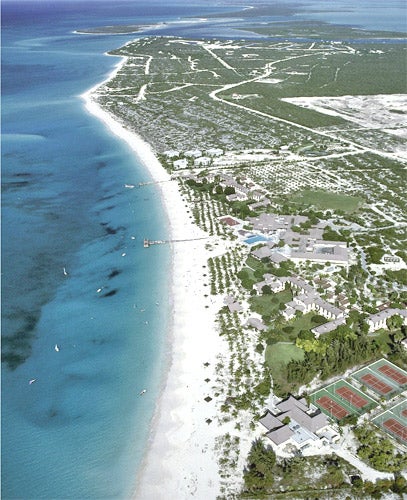Scandal-hit Turks and Caicos islands seek £160m UK taxpayer bailout

Your support helps us to tell the story
From reproductive rights to climate change to Big Tech, The Independent is on the ground when the story is developing. Whether it's investigating the financials of Elon Musk's pro-Trump PAC or producing our latest documentary, 'The A Word', which shines a light on the American women fighting for reproductive rights, we know how important it is to parse out the facts from the messaging.
At such a critical moment in US history, we need reporters on the ground. Your donation allows us to keep sending journalists to speak to both sides of the story.
The Independent is trusted by Americans across the entire political spectrum. And unlike many other quality news outlets, we choose not to lock Americans out of our reporting and analysis with paywalls. We believe quality journalism should be available to everyone, paid for by those who can afford it.
Your support makes all the difference.British taxpayers will underwrite a £160m bank loan to a scandal-hit group of islands in the Caribbean.
The Turks and Caicos Islands have been under the direct rule of Westminster for the past 18 months, as a criminal investigation into allegations of bribery and corruption by the members of the last locally elected government there drags on.
The islands have become heavily dependent on British aid and this week a group of their political leaders are in London asking for more.
Yesterday, Labour's deputy leader, Harriet Harman, demanded to know why the aid budget was being used to support businesses in a part of the world under direct British rule.
But the islanders' case has been vigorously supported by the Conservative MP Andrew Rosindell, who argues that helping places which fly the Union Jack should take precedence over Third World development. Key parts of the islands' economy are run by Britons and Canadians who moved there to start businesses, though the population also includes an unknown number of Haitian boat people fleeing poverty. The last census put the population of the seven islands at 33,202.
The £160m bank loan, which will be paid out of Britain's aid budget if the islanders' default on it, is equivalent to more than £4,800 for every man, woman and child living there.
The islands also have a short-term loan of £27.3m – more than £820 per capita – from the Department for International Development. Direct aid to the islands has increased sharply since the start of the corruption investigation. Last year, the islands received just under £4.7m, or £141 per head.
Before last year's general election, the issue of aid to Turks and Caicos threatened to become a political embarrassment for the Conservatives because one of the islands' major financial institutions is controlled by the Tory peer Lord Ashcroft, who was then the party's deputy chairman. Lord Ashcroft's British Caribbean Bank financed a development boom in the islands over the past decade, but its profits have tumbled as the economic crisis there has unfolded. Last year, his company, BCB Holdings, wrote down $44.5m (£27.6m) in bad loans in Turks and Caicos and in the Central American country of Belize, where he also has interests. The peer is taking legal action against The Independent over two reports on his business interests in the Turks and Caicos Islands from November 2009.
The Foreign Secretary, William Hague, visited Turks and Caicos in March 2007 on a flight paid for by Lord Ashcroft's firm, Flying Lion. Mr Rosindell and his adviser, Coleman Starbuck made a fact-finding visit to Turks and Caicos last August, paid for by a separate group of local businessmen, and produced a searing report on the state of the islands' economy, which had been hit by a combination of corruption, the world banking crisis and hurricanes in 2008.
Crown land had been sold on the cheap to builders who developed for a tourist trade that went into sharp decline after 2008. The land sales are the focus of the criminal investigation, which has lasted for 18 months without anyone being charged and cost the islands' administration more than £300,000 a month.
Join our commenting forum
Join thought-provoking conversations, follow other Independent readers and see their replies
Comments